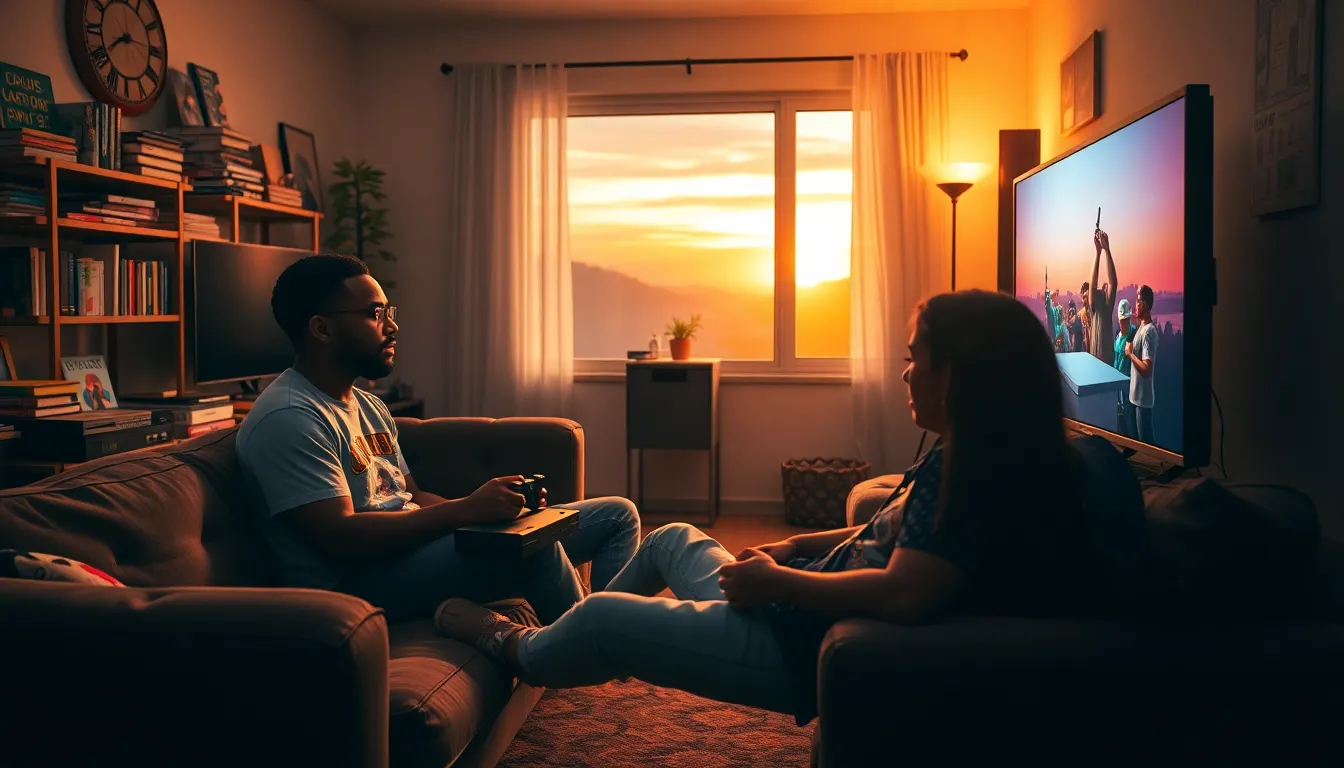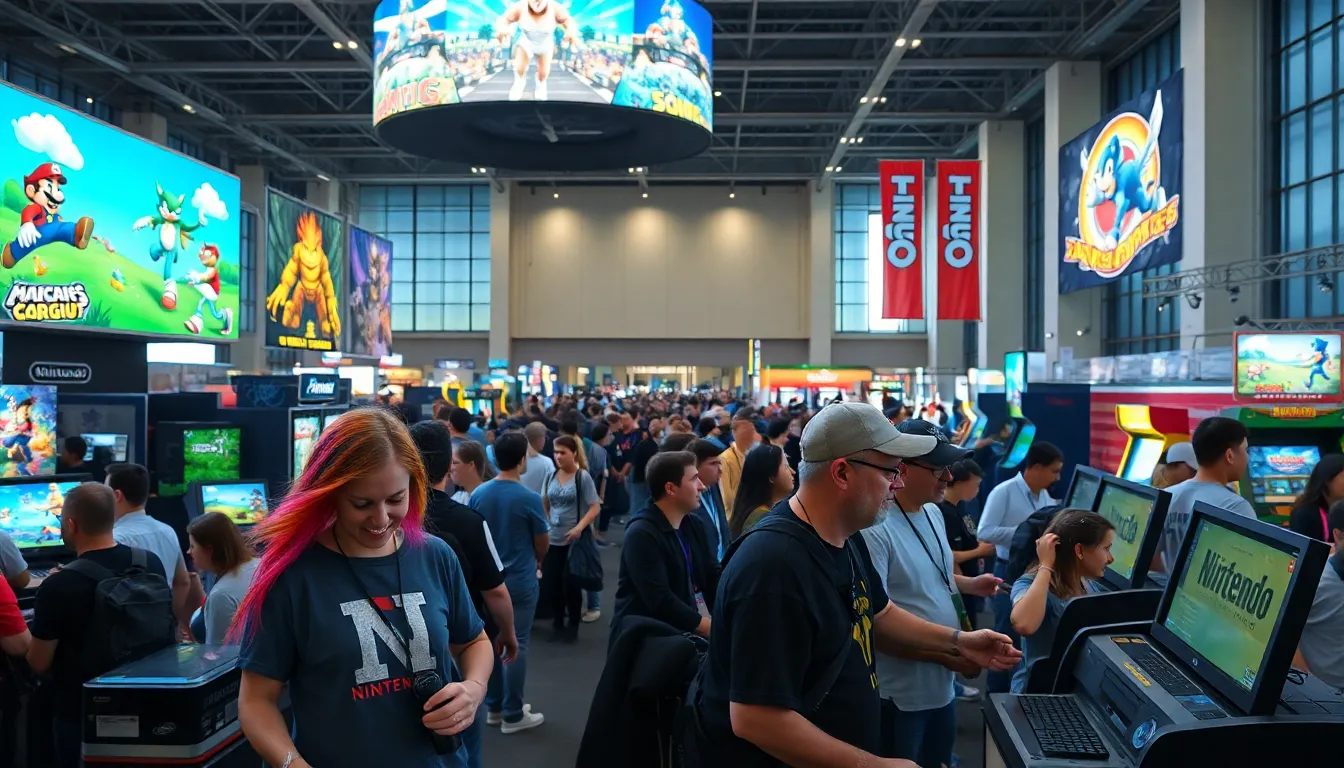In an ever-evolving digital landscape, gaming culture has significantly shaped the social fabric of modern life. From retro classics to interactive online communities, the world of gaming has become a multifaceted phenomenon that transcends the sheer act of play. This article explores the evolution of gaming, its impact on popular culture, and the future trends that will shape this vibrant community.
Table of Contents
ToggleThe Evolution of Gaming: From Retro to Modern

The world of gaming has undergone a dramatic transformation since its inception, marked by significant milestones and shifts that have defined the industry.
Key Milestones in Gaming History
The journey began in the 1970s with the introduction of arcade games like 2lderidge and classic consoles such as the Atari. These early experiences laid the groundwork for home gaming, which exploded in the 1980s with the Nintendo Entertainment System (NES), revitalizing interest in video games after the crash of 1983. Fast forward to the late 1990s and early 2000s: the rise of 3D graphics with consoles like the Sony PlayStation and Microsoft Xbox changed the gaming landscape forever.
The Shift to Online Gaming
The late 1990s also saw the birth of online gaming, with titles such as “EverQuest” pioneering MMORPGs (Massively Multiplayer Online Role-Playing Games). The new millennium brought broadband internet, leading to a surge in online gaming platforms and esports, fundamentally shifting how players interact and engage with games worldwide.
The Rise of Mobile Gaming
Mobile gaming has transformed the industry drastically, allowing gaming to become more accessible than ever.
Influence of Gaming on Pop Culture
Mobile devices introduced gaming to a broader audience, breaking down the barriers of age and experience. Games like “Candy Crush” and “Pokemon Go” not only became cultural phenomena but also seeped into everyday conversations, influencing social events, merchandise, and marketing strategies. This radical change represents a significant milestone for the gaming industry, marking the seamless integration of gaming into pop culture.
Gaming in Film and Television
Also, gaming’s influence on film and television cannot be overlooked. Blockbuster adaptations, such as “The Witcher” series on Netflix, have garnered massive viewership and further blurring the lines between gaming and other entertainment mediums. These adaptations introduce gaming stories to new audiences while enriching the narrative landscape.
The Impact of Game Soundtracks
Soundtracks play a vital role in gaming, often enhancing the emotional impact of gameplay experiences.
From the 8-bit jingles of early console games to the orchestral masterpieces of today, soundtracks have evolved dramatically. Iconic scores from franchises like “The Legend of Zelda” and “Final Fantasy” are not only memorable but have also transcended the gaming world, garnering recognition at prestigious awards ceremonies. The marriage of gameplay and music creates profound emotional resonances that stick with players long after the game is over.
The Community Aspect of Gaming
At its heart, gaming thrives on community, fostering connections among players through shared experiences.
Esports and Competitive Gaming
Esports represent a significant facet of this community, transforming the way gamers engage with each other. Competitions now fill arenas worldwide, drawing millions of viewers on streaming platforms like Twitch and YouTube. The rise of professional leagues and collegiate esports highlights gaming’s evolution into a legitimate sport, with teams and players gaining notoriety and lucrative sponsorships.
Online Communities and Social Interaction
Also, online communities play a crucial role in shaping the gaming experience. Platforms like Discord and Reddit provide spaces for players to connect, share tips, and discuss strategies, while also offering social interaction opportunities that go beyond individual play. These interactions strengthen friendships and create lasting bonds, ensuring gaming remains a shared cultural experience.
The Future of Gaming: Trends to Watch
As technology continues to evolve, so too does the future of gaming.
Emerging Technologies in Gaming
Emerging technologies, such as cloud gaming and AI-driven game design, are set to revolutionize the industry further. Cloud gaming services like Google Stadia and NVIDIA GeForce Now enable players to access high-quality gaming experiences without the need for powerful hardware. Also, AI technologies offer new possibilities in game design, allowing for more dynamic and personalized gameplay experiences.
Virtual Reality and Augmented Reality Trends
Also, virtual reality (VR) and augmented reality (AR) are quickly becoming cornerstones of the gaming landscape. VR headsets like the Oculus Quest series provide immersive experiences, transporting players into fantastical realms. Meanwhile, AR technologies, as evidenced by games like “Pokemon Go,” create hybrid gaming experiences that blend the digital and real worlds, presenting exciting opportunities for future game development.
Conclusion
As evidenced by its rich history and ongoing evolution, gaming culture has become a cornerstone of modern society, influencing everything from technology to social interactions. With trends like mobile gaming, esports, and emerging technologies setting the stage for the future, it’s clear that the world of gaming is more vibrant than ever. Understanding this cultural phenomenon is essential not only for gamers but for anyone hoping to grasp the intricate ways in which digital and social landscapes interact.




